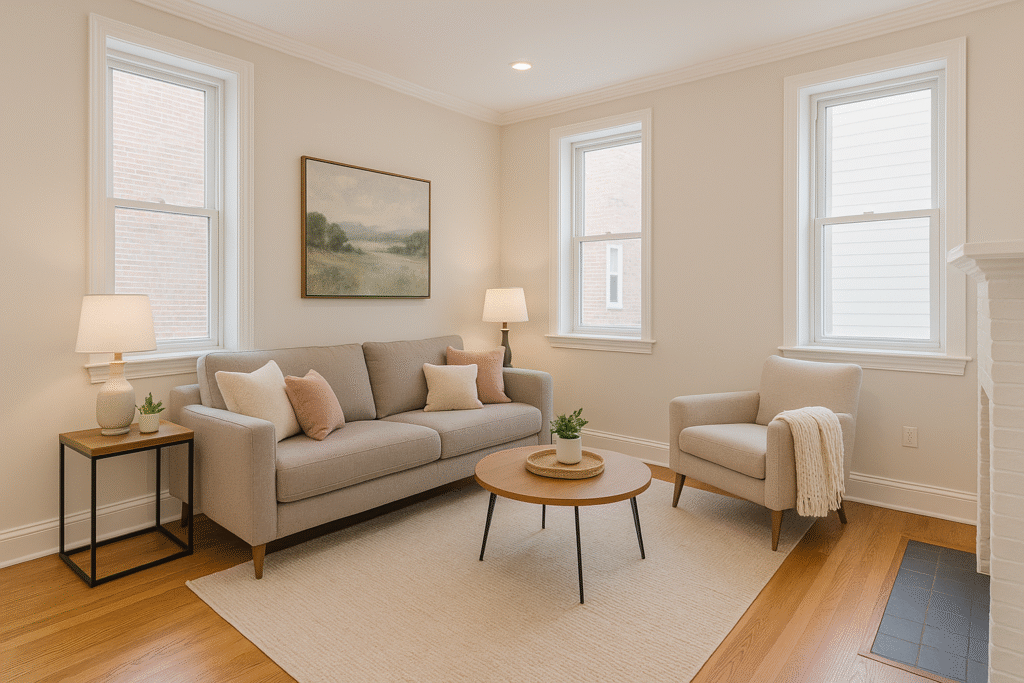
Why staging influences buyer decisions.
Staging helps prospective buyers emotionally connect with your home. When they can envision their life here—family dinners in the dining room, cozy nights in the living area—they’re more likely to make a strong offer.
Prioritizing key rooms for staging.
Focus on the main living areas: living room, kitchen, and master bedroom. These rooms set the tone. Neutral décor, well‑placed lighting, and minimal, high-impact furniture create an inviting atmosphere that highlights your home’s features.
Philadelphia-specific staging tips.
In neighborhoods like Rittenhouse Square, buyers appreciate upscale elegance—think velvet toss pillows and crisp white linens. Meanwhile, in University City, transitional vibe works: a blend of comfy seating, modern light fixtures, and minimalist accessories.
Avoiding staging pitfalls.
Don’t overstage—too much clutter or generic décor can feel cold. Instead, strike a balance: declutter, add purposeful accents, and freshen up major surfaces like countertops and cabinets.
Leveraging staging for greater appeal.
Staged homes in Philly typically sell in half the time and for 1–3% more than unstaged homes. With savvy staging that taps into local sensibilities, your listing can stand out in a crowded market and appeal directly to buyer emotions.

